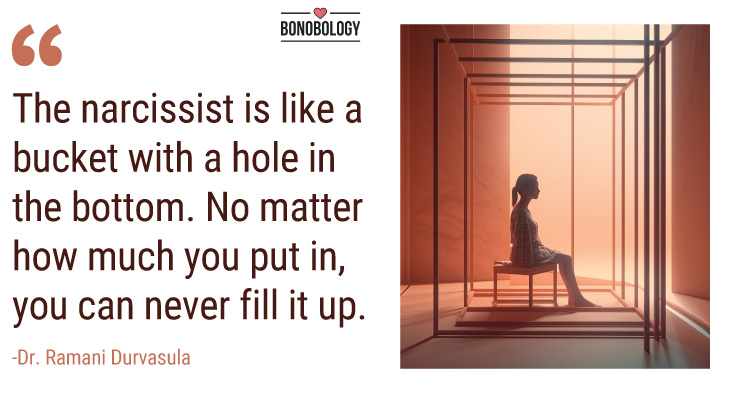To be “two bodies and one soul”, to be “one flesh”. We are not new to these age-old proverbs providing us with the mantra with which to conduct our marital lives. Say it any way you want, they lead us in the same direction—to learn how to leave and cleave in marriage. In other words, learning how to set healthy boundaries with our older family as we embrace our new one.
Consider this scenario: It’s the first morning for a newly married couple. The wife wakes up hungry. Too shy to do so herself because of the presence of extended family, she asks her husband to bring him a cookie from the kitchen. The husband says that in this family, they always bathe and pray before eating anything. “This is how we do it in this family.” The wife is left feeling like an outsider expected to suddenly transform into a new person.
Another scenario. A couple faces some financial trouble. Without consulting her husband, the wife calls her parents, involves them and seeks their help and accepts it. The husband is left feeling betrayed.
In both these situations what happens is that a partner fails to prioritize their connection to their spouse as their primary responsibility by refusing to leave their parents to cleave to their spouse. In short, the partner fails to leave and cleave.
What Does “Leave And Cleave” Mean?
Table of Contents
“Leave and cleave” simply means to leave your older family which is the one with one’s parents and attach yourself to or cleave to your spouse. The aim is to understand that a new nest needs to be built with a person who until you met them was a complete stranger. This needs to be done on a ground of mutual respect and complete trust. To establish this, it becomes important that the new relationship is given utmost priority and one owes their complete allegiance to this relationship. To cleave, it becomes important to leave.
Leaving doesn’t necessarily mean to literally cut-off ties. This in no way means to completely cut-off from one’s in-laws or parents. In fact, their wisdom and their help are usually beneficial to a young family. Children benefit tremendously from the company of their grandparents. Leave and cleave means to respectfully and gracefully lessen your dependence on the older family by gradually distancing yourself from your in-laws and parents, and shift your loyalty and cleave to your spouse.
The benefits of leave and cleave marriage are many. It allows the couple to be in sync with each other in the face of the constant-decision making that needs to be done in a household. It gives them control over their own lives, and space to build a structurally sound new nest that can grow and flourish. And mostly, the mutual trust developed from the process helps in living a stress free marital life where each partner can rest easy that their faith in their spouse will not be broken.
Related Reading: 10 Ways To Become Best Friends With Your Spouse
How To Better Leave And Cleave In Marriage

To leave and cleave in marriage, it is crucial to first establish a few things and then commit to some boundaries. These boundaries need to be set to avoid leaving and cleaving problems which result in conflict and sometimes, ultimately, in separation or divorce. Understand that your demand for space is not invalid. Your parents have already built a strong unit of their own. And now it’s your turn.
1. Admit that cleaving is important
First and foremost, it is important for both partners to consciously admit and agree that their relationship is in fact the most important thing to them. This is vital because it puts them on the same page. It allows the partner who will make a mistake in the leave and cleave department to take any emotional feedback from their spouse in the right spirit.
This is very helpful in conflict resolution. Now, since the goal is the same, it becomes easy to course-correct together when something goes wrong.
2. Understand this is not about disrespecting one’s parents
Some people may feel a disagreement at heart with the concept of leaving your parents to cleave to your spouse considering the values we are taught in the society. Men who publicly agree with their wives over their parents sometimes face anything from light taunts to intense ridicule.
One needs to be convinced in their heart that having an attachment to your spouse is beneficial for the healthy life of a relationship and that there is nothing wrong with prioritizing it. Only then will you understand that the concept of leaving your parents is not about actually leaving them but changing priorities. Leave and cleave is not about loving anyone less.
Related Reading: 7 Tips For Men Who Are Stuck Between Wife And Mother In A Joint Family
3. Be one flesh, or cleave to your spouse
The bond with your parents is inherently a strong one. It’s not only older, it’s biological. This can make it very easy to fall back on them for support. But it may make your partner feel estranged and distanced when that happens.
You must remember to leave and cleave by committing to your partner to fulfill your emotional needs. Your spiritual, mental, emotional and physical agony must first be shared with your partner, so that they know they are a part of you and know what is going on with you. Imagine how you’d feel if you learnt about a certain difficulty your spouse is facing from someone else.
4. Be the shield
Whenever your spouse and your parents are in a state of conflict, it is easy for your spouse to feel overpowered and suddenly feel like an outsider because of the group dynamics. Especially in a new relationship when the bond between a person is bound to be stronger to an older connection in comparison to a new one. Even more so in an arranged marriage.
In such a situation always be a shield and protect your partner. It is your responsibility to make your partner feel comfortable in the company of your older family. If you disagree with them, you can lovingly communicate it to them in private.

5. Be the mediator
Can you think of something difficult that needs to be communicated to your parents? For example, that you cannot make it to their home for the holidays. Or that something they unknowingly said to your child was problematic. Or even talking about “cleave marriage.” These conversations can be upsetting for your parents.
The onus of having these though conversations falls on you. Take the initiative to lovingly, gently and honestly communicate it to your parents. Coming from you, it won’t be as hard a blow for them as it would be otherwise. In fact, couples must have a pact between them to do this, like a marriage mantra- My parents, my (difficult) conversation. This will also give them a sense of the boundary of separation between their unit and yours.
6. Talk to your parents about “cleave marriage”
You might see that your parents are having a difficult time understanding leave and cleave. They might have never heard of “cleave marriage.” When they see you cleave to your husband or cleave to your wife they might think you love them less.
Talk to them openly about their insecurities. Remind them of their own relationship and how they must have needed space too. Ask them to respect the boundaries of your new family unit. Demand from them the independence to prioritize and nurture your marital life, your family.
Related Reading: 5 Reasons Why The Indian Family Is Killing The Indian Marriage
Leaving your parents to cleave to your spouse may not be easy. But leaving and cleaving problems are aplenty. Don’t forget, if all goes well, your partnership in marriage is the longest relationship you will have. It’s the longest time you will ever spend with someone. Nurture it. Protect it. Prioritize it.
FAQs
The concept of leave and cleave comes from the Bible, where it says, “Therefore shall a man leave his father and his mother, and shall cleave unto his wife: and they shall be one flesh” Genesis 2:24 KJV. Even though talking about Adam and Eve, the very first man and the very first woman, with no parents in the picture, the Bible finds it necessary to instruct men and women to adhere to this idea. It prescribes them to detach from their older life and attach to their partner to create a new one.
Leave and cleave is important because a couple needs 100% space and independence to create a new life entirely from scratch. Starting a life with someone who up to one point was a stranger, needs extra care and nurturing. It deserves one’s complete attention and dedication along with a show of loyalty. This is only possible if older bonds are gradually loosened, and the new one is given priority.
To cleave to your wife, or to cleave to your spouse means to attach to them, to be one with them. It means to owe your allegiance to this relationship over any other. That this person is no.1 in your most important person list. To cleave to your wife means that you will choose her over anyone else. That you will give her and everyone around you the impression that she takes precedence in your life. To cleave to your spouse, is a lifelong commitment that you make for the benefit of your marital life.
I Had An Arranged Marriage And Here’s How I Got My Wife To Trust Me
Your contribution does not constitute a charitable donation. It will allow Bonobology to continue bringing you new and up-to-date information in our pursuit of helping anyone in the world to learn how to do anything.























Featured
50 Questions For Premarital Counseling To Prep For Marriage
Why Is Marriage So Hard? Reasons And Ways To Make It Worthwhile
15 Signs Of Being Married To A Narcissist And How to Cope
Building Healthy Boundaries: The Key to Trust and Respect in Relationships
How To Deal With A Negative Spouse – 15 Expert-Backed Tips
What Is A Codependent Marriage? Signs, Causes, And Ways To Fix
7 Signs You Have A Verbally Abusive Wife And 6 Things You Can Do About It
Emotional Dumping Vs. Venting: Differences, Signs, And Examples
Husband Wife Relationship – 9 Expert Tips To Improve it
12 Hurtful Things You Or Your Partner Should Never Say To Each Other
7 Expert Tips To Resolve Conflict In A Marriage
Rediscover The Spark: How To Fall Back In Love With Your Partner
3 Key Skills To Save Your Marriage & Stop Divorce
Roommate Marriage – Signs And How To Fix It
What To Do When Your Husband Belittles You
How To Deal With A Lying Husband?
Why Am I So Depressed And Lonely In My Marriage?
11 Signs You Have A Narcissistic Wife
21 Signs Of A Narcissistic Husband And How To Cope
7 Fundamentals Of Commitment In A Marriage